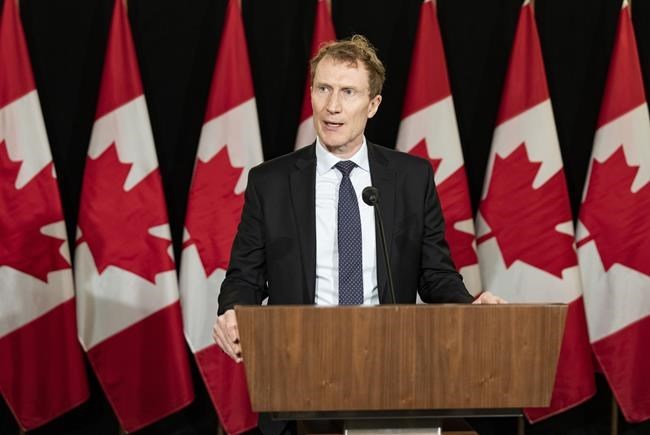OTTAWA — Canada is capping the number of study permits it approves over the next two years to get a handle on a ballooning international student program.
Immigration Minister Marc Miller announced new limits to the program on Monday, including a temporary cap that will reduce the number of new student visas by 35 per cent this year.
Here's what you need to know about the program and the changes that are coming.
What is the international student program?
Foreign nationals who want to study at a Canadian institution usually need to get a study permit from the federal government. To apply, prospective students must submit a letter of acceptance, personal documentation and proof of financial support.
Until now, there have not been any limits on the number of students who can enter the country. The government mostly approved visa requests as long as the student could show they were accepted at an accredited school.
Provinces and territories are responsible for choosing which institutions are eligible to enrol international students.
How many international students are there in Canada?
The federal government expected the number of people in Canada on a student visa to hit 900,000 in 2023, Miller said last fall.
There were more than 807,000 permit-holders in the country in 2022, according to Immigration, Refugees and Citizenship Canada. That's nearly a 31 per cent increase over 2021.
More than half of those students were in Ontario in 2022.
How much tuition do international students pay?
International students pay considerably higher tuition fees than Canadian students, and the gap between the two groups has widened in recent years.
For the 2022-23 academic year, Statistics Canada reported that international undergraduate students paid an average of $36,123. That's 429 per cent more than tuition fees for domestic students.
Why is the program being capped?
The international student program has come under significant scrutiny in recent months as experts warn that strong population growth is putting pressure on an already-strained housing market.
The Liberal government has been under fire because a sharp rise in temporary residents — which include international students — is happening at a time when housing supply is failing to keep up with demand.
Policy experts and elected officials have also raised concerns that post-secondary institutions are relying on international student admissions to supplement their funding because their tuitions are so much higher.
Miller has even accused some institutions running the diploma equivalent of "puppy mills" rather than offering their students a quality education.
Ontario colleges have stood out in particular for large increases in international student enrolments.
According to Statistics Canada, the number of international college students increased by 154 per cent between 2014-15 and 2019-20. In comparison, the number of international university students increased by about 40 per cent over that same period.
What are the newly-announced changes?
The number of new visas handed out this year will be capped at 364,000, a 35 per cent decrease from the nearly 560,000 issued last year. The number for 2025 will be set after an assessment of the situation later this year, Miller said.
The cap will apply only to post-secondary undergraduate students, not those seeking visas for master's programs, doctoral degrees or elementary and high school students.
The government will also bar students in schools that follow a private-public model from accessing postgraduate work permits as of Sept. 1.
In a few weeks, open work permits will only be available for the spouses of students enrolled in masters and doctoral programs, as well as professional programs such as medicine and law.
How have universities and students reacted?
Groups representing universities and students are expressing concern about the temporary cap and the potential fallout of the changes to the program.
Universities Canada said in a statement it's worried the cap per province "is going to add stress on an already stressed system." It said it's difficult to comment on what effect it will have on Canada's universities before there is more information about how each province will roll out the program.
Meanwhile, Migrant Workers Alliance for Change, which includes a subgroup representing past and present international students, strongly rebuked the federal announcement.
A spokeswoman said immigrants are being "scapegoated" for affordability issues, while the changes won't protect international students from abuse.
"This does not fix the failures of the massive expansion of such get-rich institutions to which recruiters will continue to funnel vulnerable students," Sarom Rho said in a statement.
"There must be a single system in which schools that are eligible for study permits should also be eligible for post-graduate work permits. If the school is not good enough for a post-graduate work permit, it simply should be closed down."
This report by The Canadian Press was first published Jan. 22, 2024.
Nojoud Al Mallees, The Canadian Press



